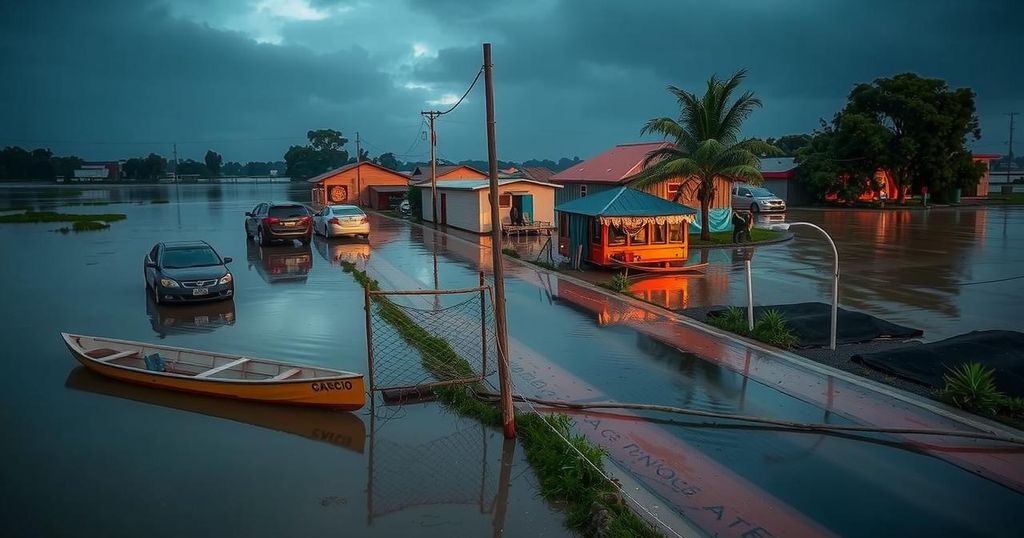Heavy rains in South Sudan have resulted in devastating flooding, affecting over one million people and displacing around 271,000 individuals. The UN has warned that the situation may intensify, potentially impacting up to 3.3 million people by the end of the year. Major supply routes have become impassable, posing significant challenges for humanitarian access in an already food insecure region.
Recent reports indicate that heavy rainfall in South Sudan has led to severe flooding that has impacted over one million individuals. The UN Office for the Coordination of Humanitarian Affairs (OCHA) provided updates from Juba, revealing that the floods have displaced approximately 271,000 persons across 42 of the nation’s 78 counties. The most affected regions are the Northern Bahr el Ghazal and Unity states, where about 40 percent of those impacted reside. The OCHA has cautioned that the situation may worsen, with predictions suggesting that as many as 3.3 million people could be affected by unprecedented flooding between the months of September and December. This natural disaster has also made 15 vital supply routes impassable, complicating access for humanitarian aid efforts. South Sudan is already categorized as one of 18 global hunger hotspots, adding urgency to the situation as food security continues to decline amid these environmental challenges.
South Sudan has been grappling with climatic challenges that have exacerbated food insecurity and humanitarian crises. Currently, heavy rains are contributing to record levels of flooding, affecting millions. With the imminent threat of additional rain patterns remaining above average, this situation poses a significant risk to the populace, as waterlogged areas can hinder agricultural activities and disrupt supply chains vital for food distribution. The country is under increasing pressure from humanitarian organizations to address the needs of those displaced or affected by these natural disasters, which are predicted to escalate in intensity.
In summary, the flooding in South Sudan has led to extensive human displacement and compromised food security, with projections for the number of impacted individuals to rise significantly in the coming months. The international community and local authorities face the pressing challenge of delivering aid to the affected regions amidst obstructed access routes. A concerted effort is necessary to mitigate the effects of this disaster and address the underlying vulnerabilities that exacerbate the situation.
Original Source: www.thehansindia.com






